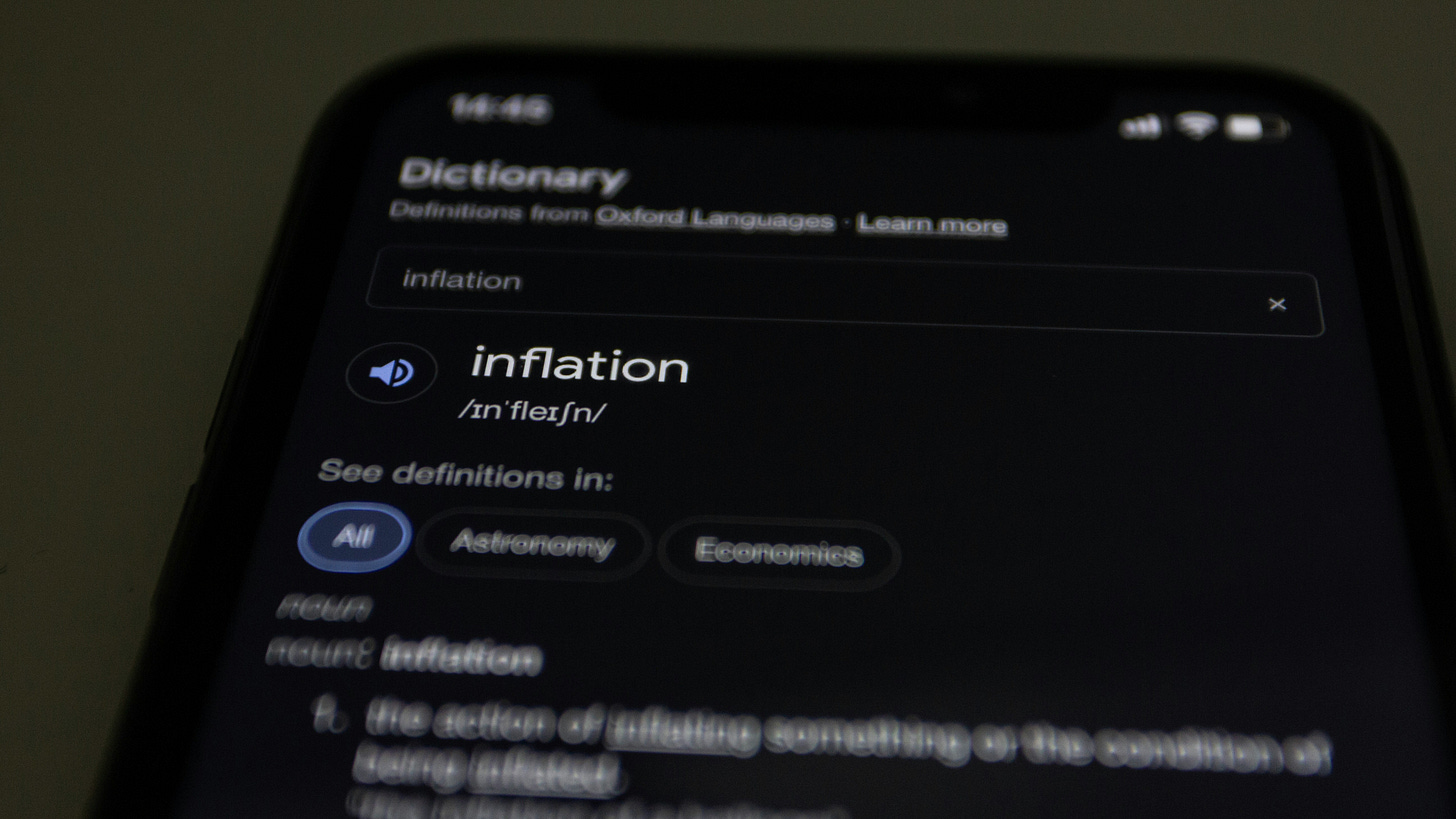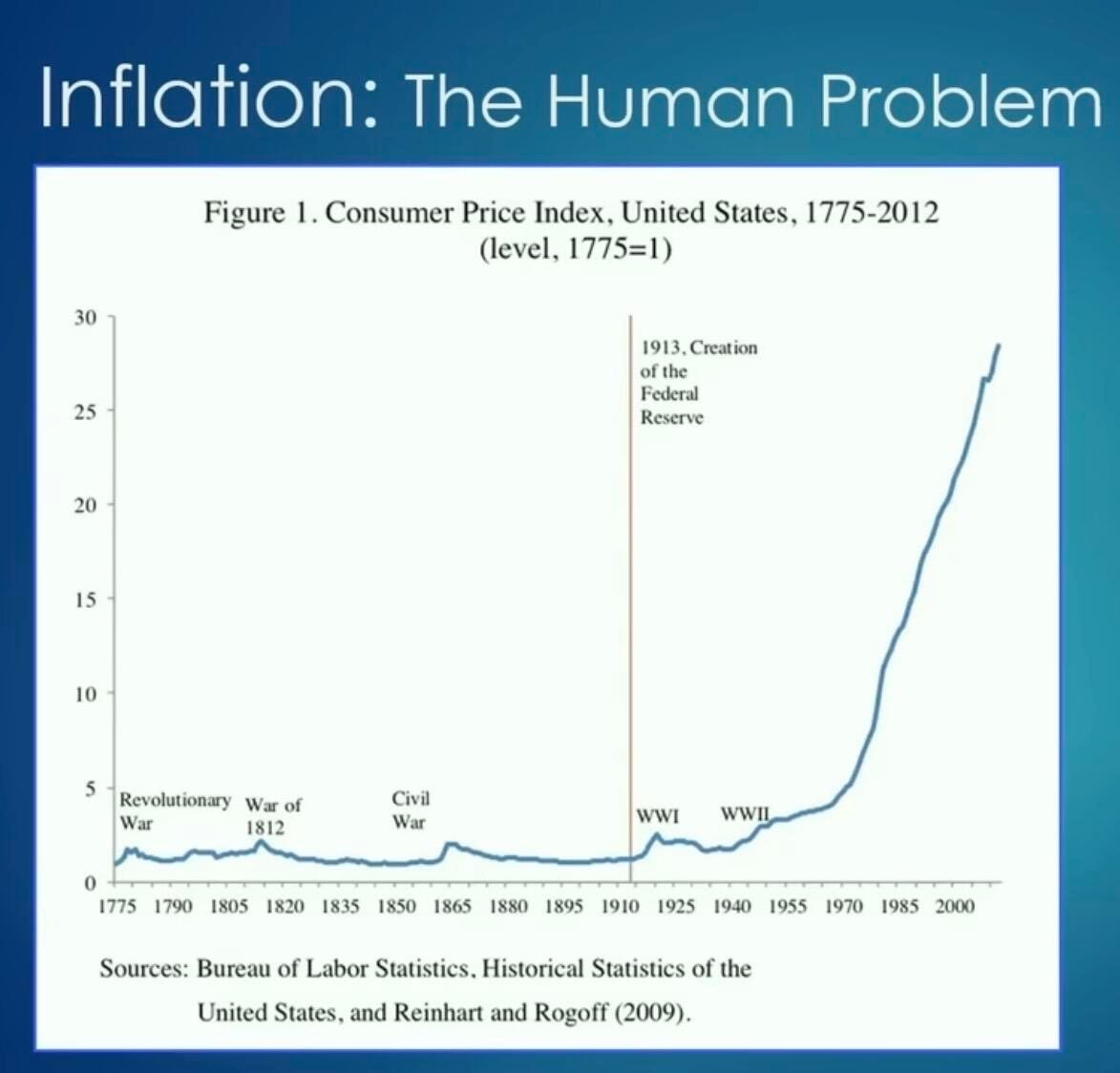More Inflation Coming Soon
With the Passage of the OBBB & the Fed Getting Pressured to Cut Rates, Inflation Will Soon Be on the Rise Once Again

This week, the One Big Beautiful Bill (OBBB) was signed into law (without the Bitcoin tax-exemption amendment Senator Lummis (R-WY) pushed to have added to it).
Odds are, the bill will add trillions of dollars to the U.S. debt (which is already over $37 trillion) in the coming years.
Famed investor Ray Dalio wrote an excellent piece for Time this week in which he explained how, historically, when governments are in this much debt, they prefer to debase the national currency (i.e., make it worth less AKA create more inflation) above all other measures.
Here’s are some bullet points from the piece:
When countries have too much debt, lowering interest rates and devaluing the currency that the debt is denominated in is the preferred path government policy makers are most likely to take, so it pays to bet on it happening.
The most hidden way, hence the most preferred and common way, for government policy makers to deal with having too much debt is to lower both real interest rates and real currency rates.
While lowering interest and currency rates in response to too much debt and the problems it creates can be a short-term palliative, it can reduce demand for the currency and the debt and create longer-term problems because it reduces the returns of holding the currency/debt, which reduces the value of the debt as a storehold of wealth. And over time, it usually leads to higher debts since the lower real interest rates are stimulative, making the problem worse.
And the kicker is that not only will the bill cause more inflation, but President Trump’s pressuring Fed Chair Jerome Powell to lower rates (while inflation is already over 2%) will also drive inflation higher.
Lastly, one of the main indicators that signals a rise in the price of consumer goods is financial indices like the Dow Jones and the S&P 500 being high (both are just about at all time highs). When people feel like they are richer on paper, they have a tendency to spend more.
If you’d like to learn more about why the dollar has lost so much value and has to continue to lose value through at least the early 2030s (whether Republicans or Democrats are in charge in the U.S.), I highly recommend watching the following talk:
Also, I HIGHLY RECOMMEND you watch the following talk. It’s one of the best talks on Bitcoin I’ve heard in years.
It highlights so many of the problems that have been exacerbated since the U.S. left the gold standard in 1971 (e.g., increased cost of living, increased suicide rate, number of babies born to unwed mothers) and it makes a beautiful case for why bitcoin is both ethical money and hope for the generations that have been priced out of so much in the U.S.
“But Frank, surely the U.S. leaving the gold standard didn’t cause that much damage to society.”
To those of you saying that to yourself in your head, I present to you the following two charts:
Senator Lummis’ Bitcoin Capital Gains Tax-Exemption Bill
As I mentioned above, Senator Lummis recently pushed for a vote on an amendment to the OBBB that would have created a de minimis tax exemption around spending bitcoin.
Two days after this amendment wasn’t voted on, Senator Lummis unveiled a bill that would enable U.S. citizens to spend up to $300 in bitcoin (or other digital assets) without incurring capital gains taxes (and this is capped at $5,000 per year).
While it’s great to see a sitting Senator proposing bills that treat bitcoin as a medium of exchange, I argued this week in a piece for Bitcoin Magazine that the spending thresholds are way too low:
This Week In Bitcoin Legislation Recap
I also spoke about the above bill in greater detail in a conversation I had with Julian Fahrer, the creator of Bitcoin Laws, this week.
My main point with the Lummis bill was that we don’t have to settle for Bitcoin legislation that we don’t feel is good enough.
For example, given how much more value the U.S. dollar will lose in the coming years, having a spending cap of $5,000 in the bill isn’t much.
Sure, it’s a start (and the bill also stipulates that the caps will increase adjusted for inflation starting in 2026), but if we’re about to move into a super inflationary environment, $5,000 won’t buy you much.
Fahrer and I also touched on the following topics in the video above:
Troy Cross’ recent research on the demographics of Bitcoin holders in the U.S.
The IMF rejecting Pakistan’s Bitcoin mining power allocation proposal
Updates on state-level Bitcoin bills in AZ, CA, CT and MA
Lessons for Zohran Mamdani, NYC’s unabashedly socialist Democratic nominee for mayor, from Venezuela
ADVERTISEMENT
If you’re worried about NYC turning communist or about the U.S. Treasury and Federal Reserve continuing to debase your currency, you might want to get a Trezor Safe 3 as a means to control your bitcoin — money that the government can’t steal from you or debase.
The Bitcoin Policy Institute’s Success Story
The following is my interview with David Zell, a co-founder of The Bitcoin Policy Institute (BPI), the premier Bitcoin-focused think tank in Washington, D.C.
We discussed how, in just three years, BPI went from a blog running on a shoestring budget to a legitimate force in D.C., and we also touched on why it’s important to engage with politicians and government officials to craft solid Bitcoin policy.
My Appearance on the Robin Seyr Podcast
Robin Seyr published my appearance on his podcast this week:
We discussed my work as a political reporter as well as the importance of technology that enables people to live on a bitcoin standard whether merchants or counterparties accept bitcoin or not.
Markets
Bitcoin traded sideways this week again.
I’ve been think about where we might top this cycle, and I really don’t have a good read on it (maybe $150k?).
Wherever bitcoin’s price goes from here, please note that I’m simply sharing my thoughts in this newsletter. Nothing I say is financial advice, nor should it be interpreted as such. Your financial decisions are yours and yours alone.
I still subscribe to the melt-up thesis, which is that asset prices will rise parabolically before a major crash (across all asset classes). I’m just not quite sure when that happens, nor how high bitcoin’s price goes when it happens.
That said, I wouldn’t be surprised to see something like this happen in the fall.
That’s all for this week! Thanks everyone for reading!
Big hugs, big love, and try not to let the insanity get to you.
Best,
Frank
Nostr: npub1dnzzyhmewrzkh862z7z2shwmhh5htx0rvkagepj2fkgst9ptwg3qj4x52h









